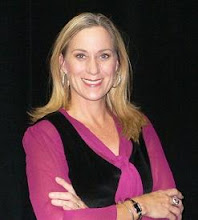I had the tremendous opportunity of attending a conference this year called Stepping Up, Stepping Back about how unions must revitalize themselves and attract young workers – especially women.
The conference report makes no bones about it: unions are at a tipping point and risk losing relevance unless they become more reflective of the demographics of the workers they represent. And if unions don’t make changes, young women activists in particular will give up and invest their energies elsewhere.
The report says union structures are to blame – that they are shutting young women out of leadership. “Union political structures reward incumbents regardless of results,” it says.
One of the report’s recommendations is term limits, which I proposed at the 2010 CMG Convention. The motion was narrowly defeated though more than half the delegates were in favour (it needed 2/3 majority).
With these issues weighing on me, I decided to step down as president of the CMG and prompt a new generation of leaders to come forward.
But I’ve been saddened to learn that even in 2010, this election is turning out to be split down gender lines. And some older, mostly male leaders are actually telling people that some younger women candidates “just aren’t ready”. As far as I can tell, this sweeping statement is never applied to any of the male candidates.
They just aren’t ready? In this race, there are candidates with much more union experience than I could have imagined having when I became president twelve years ago. There are people with track records of actually solving problems, chairing tough committees and doing the really difficult work of unionizing new workplaces by signing workers up one-by-one. One (Carmel Smyth) is even the president of the CMG's biggest single unit (CBC Toronto, with more than 2000 members!!!).
I hope that if you hear that “they just aren’t ready” line – you ask precisely what it means. What has the other candidate done that makes them more “ready”? That’s the only way to get at the roots of this gender-biased slur.
Our skills and experience as media employees don’t necessarily prepare any of us to lead a union. Being ready means being ready to listen, to learn and to lead. You need the instinct to know what members want, the ability to make priorities happen, the smarts take on office and staff management functions, and the will to enlarge the network of people in leadership roles so you can avoid entrenching an insider clique.
This election is about members choosing who is most ready to truly represent them.
Monday, November 29, 2010
Wednesday, November 10, 2010
A reminder about how dangerous our work can be
Being a news camera operator is one of the most physically demanding, and as we've been sadly reminded today, dangerous jobs in our industry.
Let's keep our fingers crossed for City-tv cameraman Bill Atanasoff who was hit by a car as he was shooting a separate police investigation in Toronto late last night. He had pulled up to the scene where other journalists were newsgathering, crossed the street to start shooting and was hit by the car.
Atanasoff was thrown several metres by the impact, in full view of the other media and police. He is in hospital in critical condition with injuries to his neck, skull and legs.
Police say they don't know if Bill's camera obscured his vision of the street or the oncoming car.
We know camera operators are incredibly vulnerable to injury. They are often looking through eyepieces and rushing to get to a scene at the same time -- meaning their own vision is obstructed and balance jeopardized. We know alot of shooting goes on in busy areas often at night and in bad weather. We know alot of news gathering takes place in unruly crowds and angry confrontations. And we know people are working longer hours, travelling further and doing more.
So let's take a moment to think about what we do, remember to be careful in what is a stressful profession, and talk openly to one another when we think enough is enough.
Let's keep our fingers crossed for City-tv cameraman Bill Atanasoff who was hit by a car as he was shooting a separate police investigation in Toronto late last night. He had pulled up to the scene where other journalists were newsgathering, crossed the street to start shooting and was hit by the car.
Atanasoff was thrown several metres by the impact, in full view of the other media and police. He is in hospital in critical condition with injuries to his neck, skull and legs.
Police say they don't know if Bill's camera obscured his vision of the street or the oncoming car.
We know camera operators are incredibly vulnerable to injury. They are often looking through eyepieces and rushing to get to a scene at the same time -- meaning their own vision is obstructed and balance jeopardized. We know alot of shooting goes on in busy areas often at night and in bad weather. We know alot of news gathering takes place in unruly crowds and angry confrontations. And we know people are working longer hours, travelling further and doing more.
So let's take a moment to think about what we do, remember to be careful in what is a stressful profession, and talk openly to one another when we think enough is enough.
Subscribe to:
Comments (Atom)
